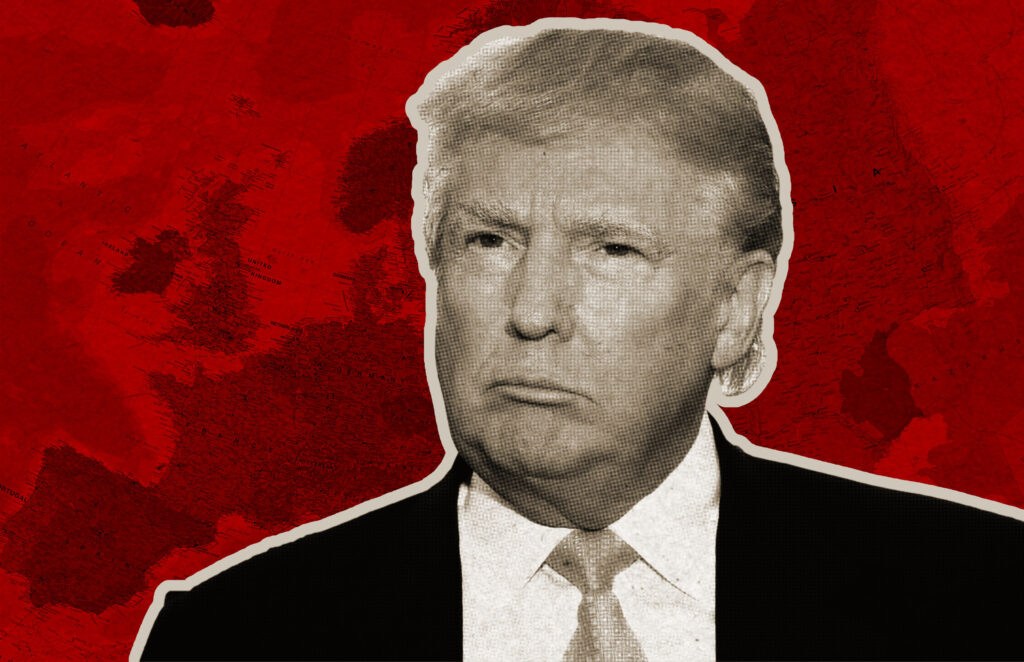11 Myths around Trump’s Tariffs

In recent years, Donald Trump’s approach to governance has sparked heated debate around the world. Supporters view him as a tough negotiator and a political outsider shaking up the status quo. Critics, however, argue that many of his actions reveal a clear trend toward authoritarianism, marked by the erosion of institutional checks and a disregard for both international norms and economic principles. Below, we dissect some of the main arguments used to defend Trump’s policies and present a fact-based rebuttal to each.
1. Tariffs Are Taxes – And Republicans Voted for Them
Despite traditionally opposing tax increases, today’s Republican leadership has largely supported Trump’s imposition of broad tariffs on imports from numerous countries. Tariffs, by definition, are taxes paid by domestic consumers and businesses on imported goods. This runs counter to the conservative principle of low taxation. In effect, Trump’s administration introduced massive new taxes, just not by name.
2. Tariffs as a Negotiation Tool – Misused
In business and diplomacy alike, threats are used as leverage before actions are taken. Trump, however, frequently imposed tariffs preemptively, triggering immediate retaliation from trade partners rather than initiating productive dialogue. This escalates into prolonged trade conflicts, most notably with the European Union and China, which harms American farmers and manufacturers. Using force first and negotiating later is not effective diplomacy, it’s coercion.
3. Misunderstanding Trade Deficits
Trump’s claim that the U.S. loses money through trade deficits is economically flawed. Trade is not a zero-sum game. When a consumer buys a $5 Big Mac, they aren’t being “robbed”—they’re exchanging money for value. Similarly, when Americans buy goods from abroad, both parties benefit. Blocking imports under the guise of “protecting” American jobs ignores the value of global supply chains and consumer choice.
4. Tax Cuts and Economic Distortion
While Trump has promised tax relief for lower-income Americans, these measures often remain unimplemented or symbolic. Meanwhile, tariffs increase the cost of goods, particularly for the middle and lower class. The economic impact of combining tax cuts with new tariffs is unpredictable and destabilizing at best, especially when consumer behavior shifts due to sudden price hikes. Especially when the tariffs already don’t even cover the cost of the tax cuts he plans.
5. A Weakened Congress and Expanding Executive Power
Trump has increasingly bypassed the legislative process, using executive orders to push major policy changes. The idea that Congress would let him act to give him an illusion of power misses the point: Congress has largely abdicated its role in checking executive overreach. The fact that significant legislation has stalled while executive orders multiply is not a sign of balance, it’s a warning about democratic erosion.
6. The Fallacy of Reciprocal Tariff Dismantling
Supporters argue Trump’s tariffs could lead to the fall of foreign trade barriers. In reality, this hasn’t happened, in any time in history. On the contrary, targeted countries like China and Russia have responded with their own tariffs, deepening economic divides. Far from opening markets, Trump’s trade war strategy has narrowed them in the past. Now he expanded this poor idea to the whole planet.
7. Accusations of Institutional Bias – Where’s the Proof?
Claims that Democrats have “infiltrated” the state or weaponized government agencies remain unsubstantiated. Institutions like USAID, often targeted by such accusations, perform critical work around the globe, from supporting healthcare and education to promoting democratic governance. Problems in implementation, like in Afghanistan, do not prove partisan corruption. Generalizations without evidence are political smears, not legitimate critiques.
8. USAID’s Global Role
USAID exists to promote U.S. interests through soft power, helping to stabilize developing countries, fund civil society, and counter authoritarian influence. Cutting its budget or discrediting its mission weakens American influence abroad, especially in contested regions where U.S. values are in competition with those of authoritarian powers.
9. Allegations Against Judges Must Be Specific
Sweeping claims about “partisan” or “corrupt” judges demand evidence. In a system based on the rule of law, accusations against judicial officials require facts, not innuendo. Without clear examples, these attacks resemble autocratic tactics used to delegitimize independent courts.
10. The Constitution and Destruction of Public Records
While the DOGE (Department of Government Efficiency) may not be unconstitutional in name, its actions, such as sudden mass firings and orders to destroy public records, raise serious constitutional and legal concerns. The deliberate erasure of institutional memory undermines accountability, transparency, and democratic oversight.
11. Foreign Policy Fantasies: The Greenland Case
Trump’s suggestion that the U.S. could get Greenland “one way or another”, emphasing that military actions are not out of the table, despite clear opposition from its residents and leadership, is more than absurd; it’s a troubling example of imperial thinking. Such proposals directly contradict international law and the right to self-determination, principles enshrined in the UN Charter, which the U.S. helped create.
Conclusion: Facts Over Fiction
Donald Trump’s second term raises important questions about the balance of power, economic strategy, and international leadership. While his defenders paint his style as unconventional but effective, a deeper look reveals a pattern of undermining democratic institutions, destabilizing global alliances, and misapplying economic tools. The facts speak for themselves, and the warning signs are clear.
Authoritarianism rarely begins with tanks in the street. More often, it starts with the slow erosion of checks and balances, justified by slogans and scapegoats. A critical, fact-based discussion is essential to safeguarding democracy.